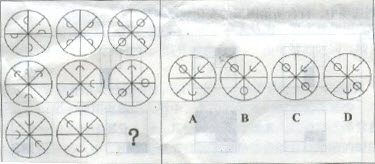问题
单项选择题
| Filled with the euphoria of victory and dreams of their first Big Ten title in 11 years, Penn State University students rushed the field as time expired in their win over Ohio State. In the chaos that followed, the campus police struggled to keep control, and identifying the overzealous fans seemed impossible, impossible, that is, until the police department turned to a new crime-fighting tool: facebook. com. Penn State officers had warned the students in advance last October that crossing over from the stands was a safety hazard and would not be permitted. When the rules were broken, a quick search online revealed the facebook, com photo album "1 rushed the field after the OSU game and lived." The album creator had even helpfully tagged all of those involved — offering the campus police an easy way to issue stem warnings. "It was really dangerous and not acceptable behavior," says Tyrone Parham, assistant director at the PSU police. "We needed to send a message. We searched the group, contacted the individuals and said that this was not tolerable behavior." Long a student favorite and the seventh most-trafficked Internet site, facebook. com has found a new following — those who wear blue. Traditionally, campus police forces have followed noise reports in their attempt to keep Saturday nights safe. But the advent of social networking sites is starting to revolutionize campus detective work. George Washington University police department chief Dolores Stafford claims, "Facebook exists and can certainly be a tool, but we’re not out there looking at the site." Students at the college, however, are not so sure. When rumors flew that campus cops were using the student social network to infringe their right to party, GWU students decided to exact revenge. In a carefully executed plan, students filled facebook, com with chatter about a raging party they were throwing, hoping the police would be watching. They were not disappointed. When the officers arrived, they found shots glasses brimming with chocolate cake, Beirut cups filled with frosting, and party-goers loaded up on sugar rather than alcohol. While the GWU police deny using the Internet to find the party, the students felt vindicated. "Cake Party" attendee Kyle Stoneman comments: "From a larger standpoint, there’s nothing immoral or illegal about the police using facebook. com. I guess they’ll play their game, we’ll play ours, and we’ll see who wins." For college police forces, however, the issue is about more than winning. Instead, they try to find that delicate balance between upholding the law (read: preventing underage drinking) and maintaining good relations with the students (read: turning a blind eye). "It’s a never-ending struggle," says Fisher College Chief of Campus Police John McLaughlin. "Like any other college and university, we want this to be as open of a relationship as possible. We don’t want to be too obtrusive and we also don’t want to be too strict. It requires real diligence." |
What does the author try to show with the "Cake Party" incident
A.(A) It was wrong of the police to interfere in the party.
B.(B) The police were definitely looking at the website.
C.(C) The students tried to protect their own right.
D.(D) Parties like this one were dangerous.
答案
参考答案:B
解析: 这是道上下文理解题。要回答这道题,无法用某句话来解析。要看整个段落甚至几个段落的意思。在文章第三段作者便举了一个关于蛋糕晚会的例子。在举这个例子之前,文中讲的是保卫人员也用这个网站。“Long a facebook.com has found a new following—those who wear blue.” (facebook.com有了一批新的追随者,那些穿蓝色衣服的人。)穿蓝色制服的其实指的就是保卫。所以举这个例子是为了说明学校的保卫人员也看这个网站,从而监视他们,故选B。

